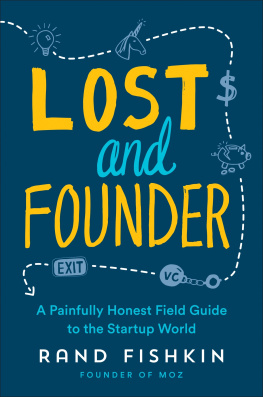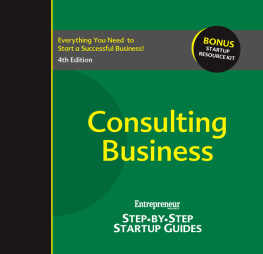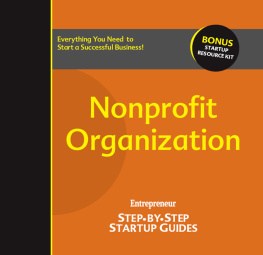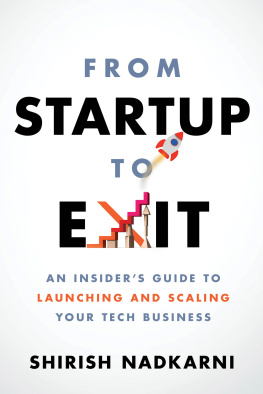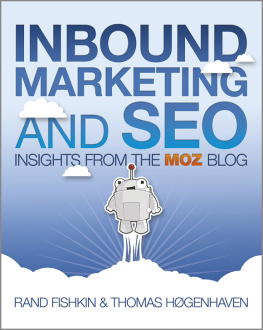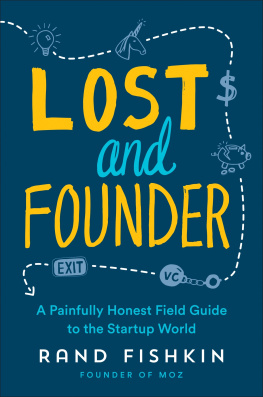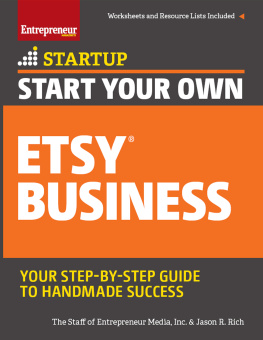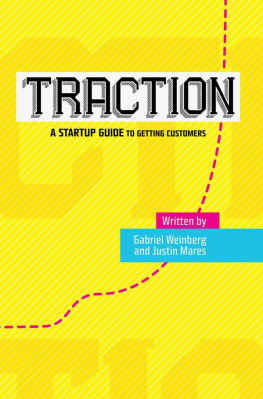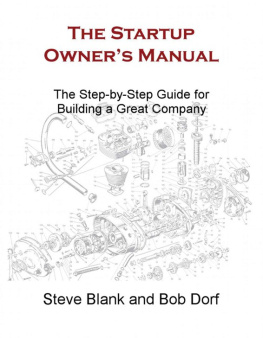
Portfolio/Penguin
An imprint of Penguin Random House LLC
375 Hudson Street
New York, New York 10014

Copyright 2018 by Rand Fishkin
Penguin supports copyright. Copyright fuels creativity, encourages diverse voices, promotes free speech, and creates a vibrant culture. Thank you for buying an authorized edition of this book and for complying with copyright laws by not reproducing, scanning, or distributing any part of it in any form without permission. You are supporting writers and allowing Penguin to continue to publish books for every reader.
Image courtesy of Kim Scott.
All other images courtesy of the author.
Library of Congress Cataloging-in-Publication Data
Names: Fishkin, Rand, author.
Title: Lost and founder : a painfully honest field guide to the startup world / Rand Fishkin.
Description: New York : Portfolio/Penguin, [2018]
Identifiers: LCCN 2017050230 | ISBN 9780735213326 (hardcover) | ISBN 9780735213340 (ebook)
Subjects: LCSH: Internet industryUnited States. | New business enterprisesUnited States. | EntrepreneurshipUnited States. | Success in businessUnited States.
Classification: LCC HD9696.8.U62 F56 2018 | DDC 658.1/1dc23 LC record available at https://lccn.loc.gov/2017050230
While the author has made every effort to provide accurate telephone numbers, Internet addresses, and other contact information at the time of publication, neither the publisher nor the author assumes any responsibility for errors or for changes that occur after publication. Further, the publisher does not have any control over and does not assume any responsibility for author or third-party websites or their content.
Version_1
To my grandparents Pauline & Seymour, my mom, Gillian, and my wife, Geraldine. Your love and support were my first investors.
CONTENTS
INTRODUCTION
THE STARTUP CHEAT CODE
Universal truths we learn by age twelve:
Never feed a mogwai after midnight.
Breakfast cereal DOES taste better if you substitute chocolate milk.
(And most relevant to our story...) The first time you play a new video game, youll suck.
The controls are foreign. The game mechanics are inscrutable. Make it through level one, and level two will undoubtedly get you. But that second time around, youll do better. And if you play for a few hours or a few days, youll start to feel the floweventually, youre unstoppable. In the zone. A juggernaut of win. THE RULER OF YOUR CASTLE (though in this case, the castle is probably your parents basement). But even if its your first time playing, theres a way to jump ahead of the learning curve: cheat codes.
Starting a business works this same way. The first time you build a company, its scary as hell. Accounting? Payroll? Customer acquisition? Recruiting? Hiring? Fundraising? People management? No wonder first-time founders, like first-time gamers, die on the first level. Customers wont pay. Employees quit. Your investors make your COO your boss, then fire you. You will very much want to retreat into a basement and play video games for several long hours, possibly years.
The good news: theres a cheat code here, too.
In my third year as a first-time, what-the-hell-am-I-doing CEO, I got an email from a Seattle entrepreneur I deeply respected, inviting me to join a local group of startup movers and shakers at a local bar. When I arrived, I was introduced to a handful of people whose names I knew from the startup news websites and blogs I followed. These were founders and technologists Id read about but never thought Id meetbasically the coolest nerds in my universe. I played it cool. We drank. We talked. Well, they mostly talked; I mostly listened.
What I heard shattered my long-held illusions about startup life.
These men and women were scared, just like me. They were uncertain. They struggled, they felt fear. They needed help. Those whod been through an experience gave advice and offered assistance to the first-timers. The longer we stayed and the more we drank, the more vulnerability emerged. No one pretended to have all the answers, but when someone had insight, they opened up.
When I got home, I tipsily typed an email to myself with some of what wed talked about. I stared at it, trying to figure out if it was possible to avoid the pitfalls, a way to not suck the first time around.
Here are some of the more tactical takeaways I learned that night (apart from four Tom Collinses are one too many):
Raising prices for your product every year or two and grandfathering in existing customers is a great way to increase loyalty and grow your profit margins. (We did this several times over the next few years; it worked like a charm.)
If you want to raise money from an investor, ask for help with your business. If you want an investor to help with your business, ask for money. (From later experiences I can verify that, yes, this totally works.)
Many voting rights for funded companies have some provision that gives special consideration to preferred shareholders. Usually, these are the investors, but smart entrepreneurs know this and thus will buy a small amount of preferred shares in their own companies during a funding round so they will also share these rights.
The Hacker News website (https://news.ycombinator.com) has an algorithm that filters out high quantities of votes from a single geography. So if you want to ask your friends to help up-vote something to page 1, make sure theyre not all in the same city. (Also, make friends in other cities.)
Recruiting for software engineers is best done directly by founders. Find people who look interesting, uncover a connection you have to them in your network, get an intro, meet for coffee, get them excited about your company, and if theyre not interested, ask who they know who might be. Not one of the groups members had success with external recruiters (at least, not in the early stages). Oh, and Craigslist still works way better than most of the other job sites, at least in Seattle.
How did these entrepreneurs acquire this knowledge? How did they have answers to questions I didnt even know I should be asking?
The answer: they had startup cheat codes. (Sadly, its not as easy as the Konami code.)
The hard way to earn those codes is experience. You struggle through a problem, follow conventional wisdom until you prove its not working, make all sorts of mistakes, and then, eventually, stumble onto a solution that succeeds. Its agonizing, but sometimes its the only path available.
The cheat is to have connections to peoplementors, advisers, friends, family, partners, employeeswhove been through the problems youre facing before and can give you a map out of the woods and onto a path that works. You need to be willing to listen. You need a network whose problems and solutions match. But when you can short-circuit the painful quagmire of stumbling through an issue alone, its gold.
Thats one of the biggest things Ive learned about startups: its dangerous to go alone

